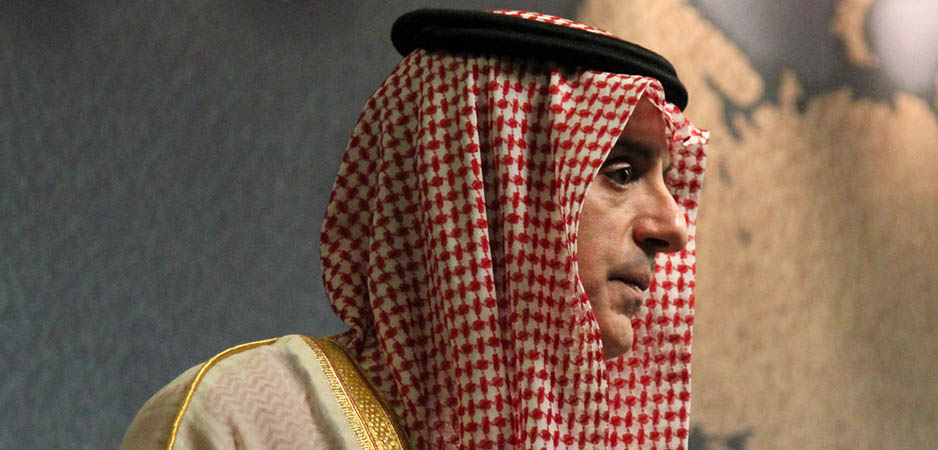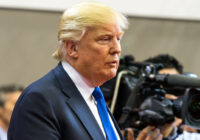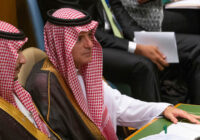Authoritarian governments have arrogated to themselves the right to define which illegal and immoral acts are legitimate and by whom they may be carried out.
The murder of Jamal Khashoggi has provoked an avalanche of Orwellian newspeak from both Saudi Arabia and the Trump administration in the US. Just before the breaking news on October 22 that the Saudis had provided a body double to give the impression that Khashoggi had left the consulate — video that many consider to be a “smoking gun,” proving premeditation — Saudi Foreign Minister Adel al-Jubeir repeated the unbelievable epithet “rogue,” which was originally offered by Donald Trump, to describe what they finally avowed was a murder.
He added the claim that the Saudi’s “didn’t know where the body is.” Even the word “know” becomes suspect in their discourse, but it may make sense. Since the journalist’s body was dismembered and the body parts disposed of separately, no one really does “know” where the body is.
Then Jubeir offers us this statement: “The individuals who did this did this outside the scope of their authority. There obviously was a tremendous mistake made and what compounded the mistake was the attempt to try to cover up. That is unacceptable to the government.”
Words such as “tremendous” and especially “mistake” and “unacceptable,” and even “cover up” are well worth glossing, but we will focus on a different one.
Here is today’s 3D definition:
Scope of authority:
The range of behavior in which an official can do anything they like, including what is illegal and immoral, with impunity
Contextual note
The foreign minister clearly wants us to suppose that murder is within the scope of some people’s authority, but not of the people who actually committed this murder. Their “mistake” was that of not deferring to someone with more scope (though, in reality, they most certainly did).
The fact that he calls this a “mistake” tells us what kind of justice the 18 people who were arrested will receive for the mistake. Not only will they have their wrist slapped, but they may even have both wrists slapped. That would be only fitting for people whose mistake was “tremendous,” especially as Jubeir seems to indicate they were guilty of two separate mistakes: the assassination and the cover up.
As for the cover up, for more than two weeks the Saudi authorities not only consistently denied the murder, but also affirmed that Khashoggi had left the premises. For his story to make any sense, Jubeir is implying that the 18 accused Saudis conspired amongst themselves to hide the facts from their own government. He wants us to believe that during all that time, Riyadh never had the slightest suspicion that the story their diplomatic team in Istanbul had told them might not be the truth. It just shows how ingenuous, trusting and generously fair-minded Crown Prince Mohammed bin Salman (MBS) can be, taking people on their word. It’s that very spirit of justice that explains why Saudi Arabia would subsequently threaten to “respond to any measure against it with an even stronger measure.”
Historical note
In a rare demonstration of European unity at the very moment when Brexit is building to a chaotic climax, the UK joined Germany and France in a joint statement “condemning the killing of Khashoggi, saying there is an ‘urgent need for clarification of exactly what happened.’” German Chancellor Angela Merkel went further and “told reporters in Berlin on [October 21] that she supports a freeze on arms exports to Saudi Arabia.”
The Khashoggi murder has the potential to radically change a number of things in the geopolitical balance of power. Thanks to Saudi Arabia’s historical connection with both the US and the UK (oil can have a magical effect on certain friendships), Riyadh’s position in geopolitics has been very stable for decades, though that began changing at least a decade ago when it became clear that at some point in the future, fossil fuel will no longer be the dominant source of the world’s energy. The events of 9/11 could be forgiven, but if oil is no longer the key that unlocks diplomatic cooperation, something must be done.
Mohammed bin Salman’s master plan was to turn Saudi Arabia into a Middle Eastern glitzy technopole, just as Dubai in the United Arab Emirates had successfully become the hub and shopping center of the internationally filthy rich. The intensified complicity of Saudi Arabia and the UAE pointed in this direction, a concentration of power through wealth in the extensive Arabian desert.
That was also the reason Qatar had to be forced into a position of utter dependence, ending, in the past year, the 37-year experiment called the Gulf Cooperation Council (GCC), which has now, for all practical reasons, been replaced by the Joint Co-operation Committee (JCC). As an agreement between Saudi Arabia and the UAE, its stated vocation is to cover “all military, political, economic, trade and cultural fields, as well as others, in the interest of the two countries.”
If MBS remains in power, the reigning opinion is that Saudi Arabia’s influence in the world will be seriously diminished. Turkey has played its hand well, and may reap multiple advantages as it sedulously defended the idea of public morality by exposing the Saudis’ crime on its territory. Iran will profit from Saudi weakness, possibly also because President Trump — who, along with National Security Advisor John Bolton, has been planning to use Saudi Arabia and Israel to effectuate regime change in Iran — has allowed himself to be compromised by his defense of Saudi Arabia’s stonewalling and his acceptance of its mutually concocted story of a “fight” that broke out at the consulate, resulting in Khashoggi’s death.
As Scottish poet Robert Burns once presciently remarked: The best-laid schemes of MBS and his men gang aft agley (translation: the best-laid plans often go awry).
*[In the age of Oscar Wilde and Mark Twain, another American wit, the journalist Ambrose Bierce, produced a series of satirical definitions of commonly used terms, throwing light on their hidden meanings in real discourse. Bierce eventually collected and published them as a book, The Devil’s Dictionary, in 1911. We have shamelessly appropriated his title in the interest of continuing his wholesome pedagogical effort to enlighten generations of readers of the news.]
The views expressed in this article are the author’s own and do not necessarily reflect Fair Observer’s editorial policy.
Support Fair Observer
We rely on your support for our independence, diversity and quality.
For more than 10 years, Fair Observer has been free, fair and independent. No billionaire owns us, no advertisers control us. We are a reader-supported nonprofit. Unlike many other publications, we keep our content free for readers regardless of where they live or whether they can afford to pay. We have no paywalls and no ads.
In the post-truth era of fake news, echo chambers and filter bubbles, we publish a plurality of perspectives from around the world. Anyone can publish with us, but everyone goes through a rigorous editorial process. So, you get fact-checked, well-reasoned content instead of noise.
We publish 2,500+ voices from 90+ countries. We also conduct education and training programs
on subjects ranging from digital media and journalism to writing and critical thinking. This
doesn’t come cheap. Servers, editors, trainers and web developers cost
money.
Please consider supporting us on a regular basis as a recurring donor or a
sustaining member.
Will you support FO’s journalism?
We rely on your support for our independence, diversity and quality.






